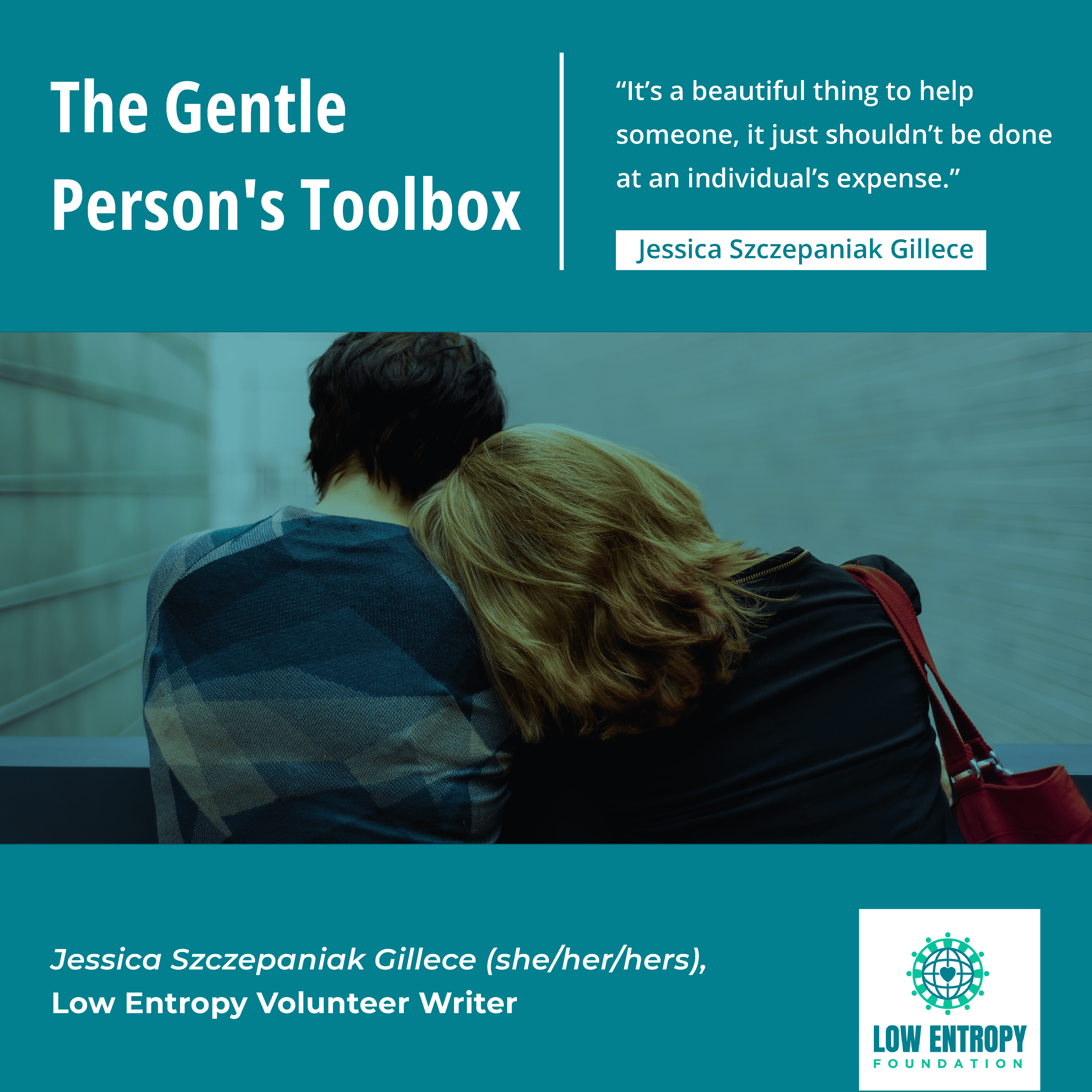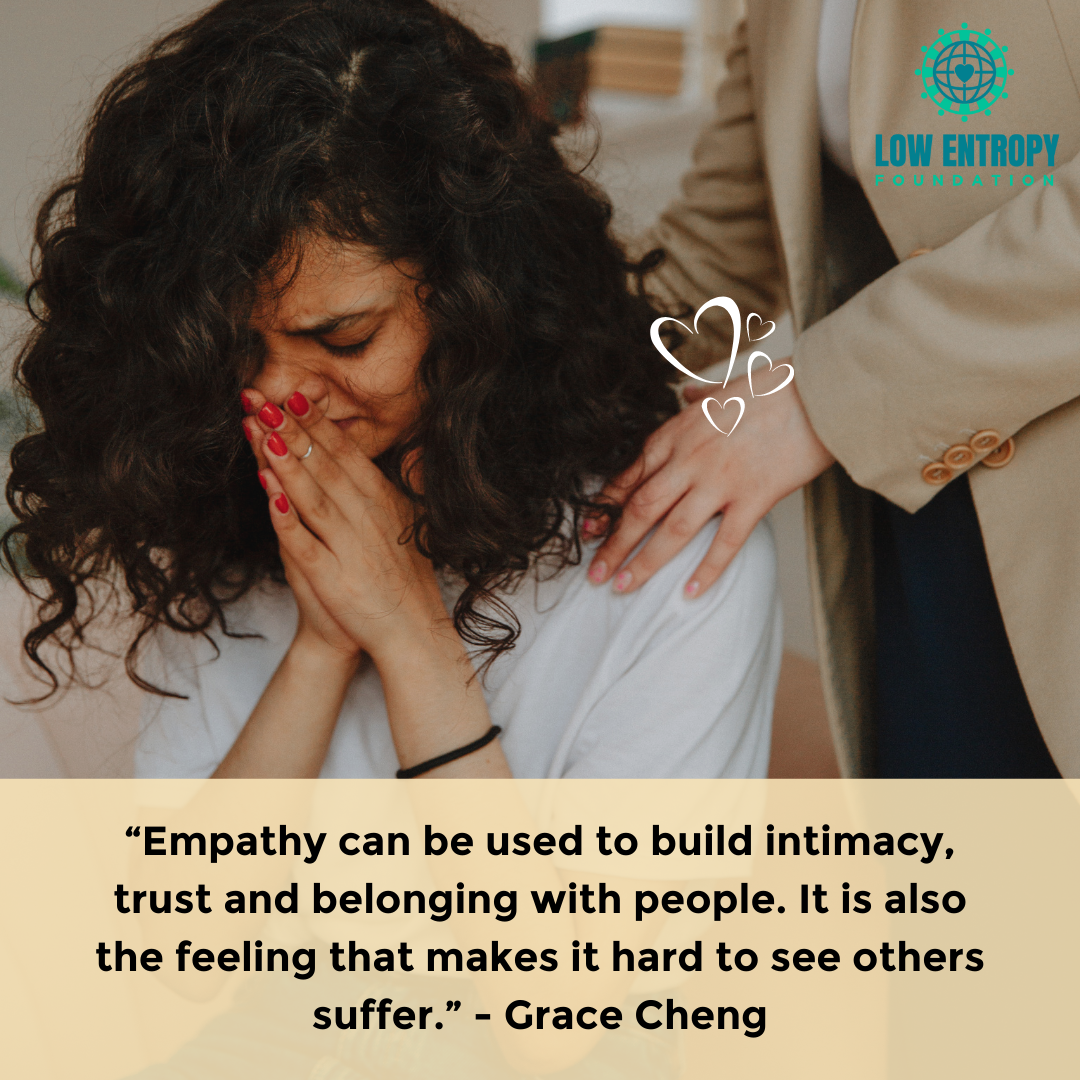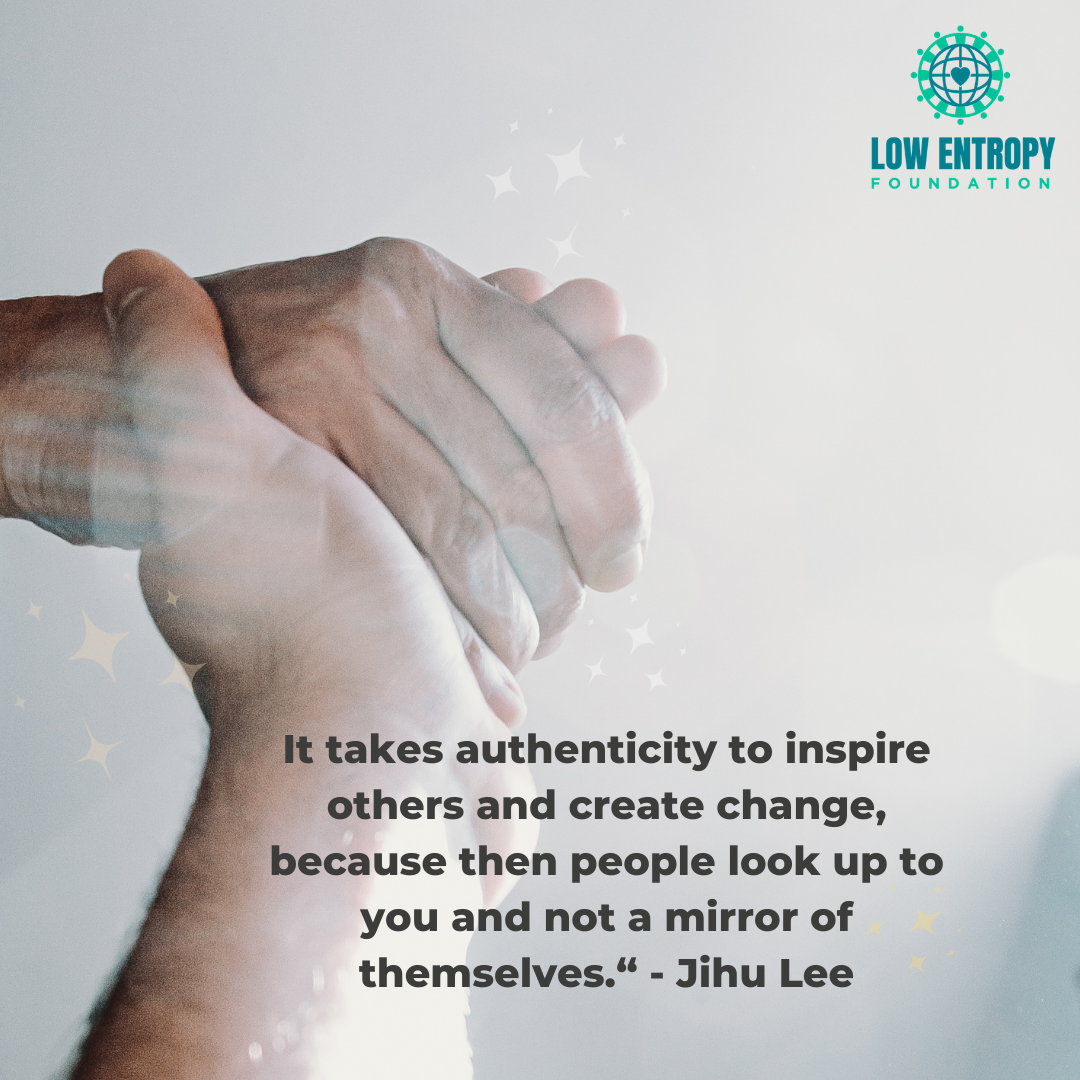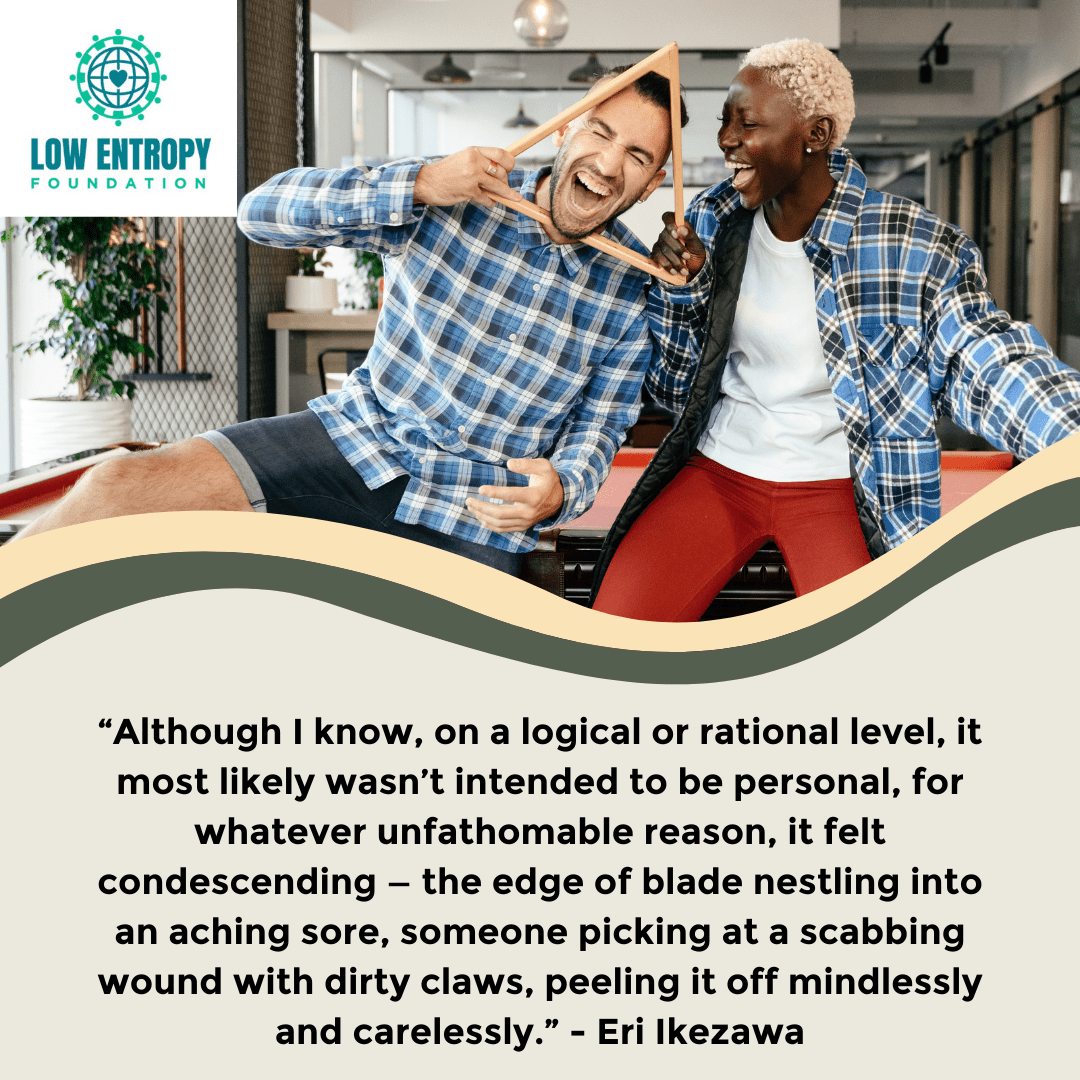The Gentle Person’s Toolbox
January 24, 2024

Jessica Szczepaniak Gillece (she/her/hers), Low Entropy Volunteer Writer
Gentle people often seem alien in this world. They are often extremely empathetic, taking on the burdens of others and identifying with human suffering. I am one of those gentle people and am used to being read as unusual. I have had former friends stare when I cried at a movie, been teased about my sensitivity and found that the world can be an exceedingly difficult place to navigate when emotions are so tender. Everything seems harsh. It can be hard to separate your own situation from the vast number of complex situations that confront us every day.
So how can gentle people survive in the world? It may not always be easy, but there are a few simple ways to make it easier. The most useful are setting good personal boundaries, knowing one’s limits and self-care.
Setting personal boundaries is a skill that requires a great deal of self-knowledge. Before creating boundaries, sit down and think about what you want. How can you react to a demanding situation in a personally protective way? Gentle people often take on other people’s burdens and can overextend themselves helping in situations that may require professional assistance. This can lead to burnout or compassion fatigue, which can take the burned-out person out of commission to help with anything else. This leaves the person frustrated and suffering.
Boundaries help prevent this. While gentle people often have very permeable boundaries, it helps to set some firm ones. Before offering help or services, including listening to or helping others, it helps to think about what a realistic boundary would be. For example, if a friend needs to talk, it helps to think about the following: Is it possible to hold space right now? What is your own strength right now and do you really have the capacity to do so? If the answer is no, don’t do it. For example, one can say that they are overwhelmed right now, but would be willing to hold space later.
It may be hard to say no. Gentle people often do not want others to be in pain and tend to want to take it on their shoulders, sharing the burden. It’s a beautiful thing to help someone, it just shouldn’t be done at an individual’s expense. Practice saying no when you need to. It validates your needs as much as someone else’s. Most importantly, say no so you’ll be able to say yes later.
Gentle people should also be aware of their limitations. Looking at emotional, mental and physical limitations is especially important for gentle, empathetic people. Before you start something, be aware of what you can do. Is there a physical limitation? Is your mental load too heavy right now? Learn the edge of your limits so you can offer empathy and help without collapsing.
Self-care is one of the most important tools in a gentle person’s toolbox. While social media wants to paint self-care as perfectly curated baths with expensive candles or expensive vacations, the real situation is much different. Gentle people especially need self-care when dealing with a world that is complicated and not necessarily constructed with their needs in mind. Self-care in this case is anything that helps someone nurture and tend to their own self, much like they would tend to another person. Self-care actions vary widely with everyone. A good indicator for self-care is to determine if it makes you feel good and helps with your mental, emotional and physical health. It does not need to just include baths, but can include long walks, time in pajamas with a good book, listening to a favourite podcast or anything that nourishes you deeply. A good self-care practice can help gentle people recover from the difficulties they face and encourage them to face forward with strength.
While the world may seem harsh to gentle people, there are ways for gentle people to survive and thrive. Gentleness is not a negative trait, but a positive force for the world. Meeting a hard world with tenderness not only helps individuals, but helps build a world where gentleness is valued and cherished, one step at a time.
—
Leave your thoughts for Jessica in the comments below. You can also follow us on Facebook, Instagram, TikTok, Twitter and YouTube to stay up-to-date with Low Entropy news!
GET INVOLVED
At Low Entropy, we believe changing the world starts with changing ourselves.
Founded in 2015, Low Entropy Facilitates conversations that encourage diversity and promote inclusivity.
We understand that life can be confusing at times. It can seem challenging and sometimes you may feel like no one really “gets you.” We offer an opportunity to connect with others who have the capacity to understand you.









